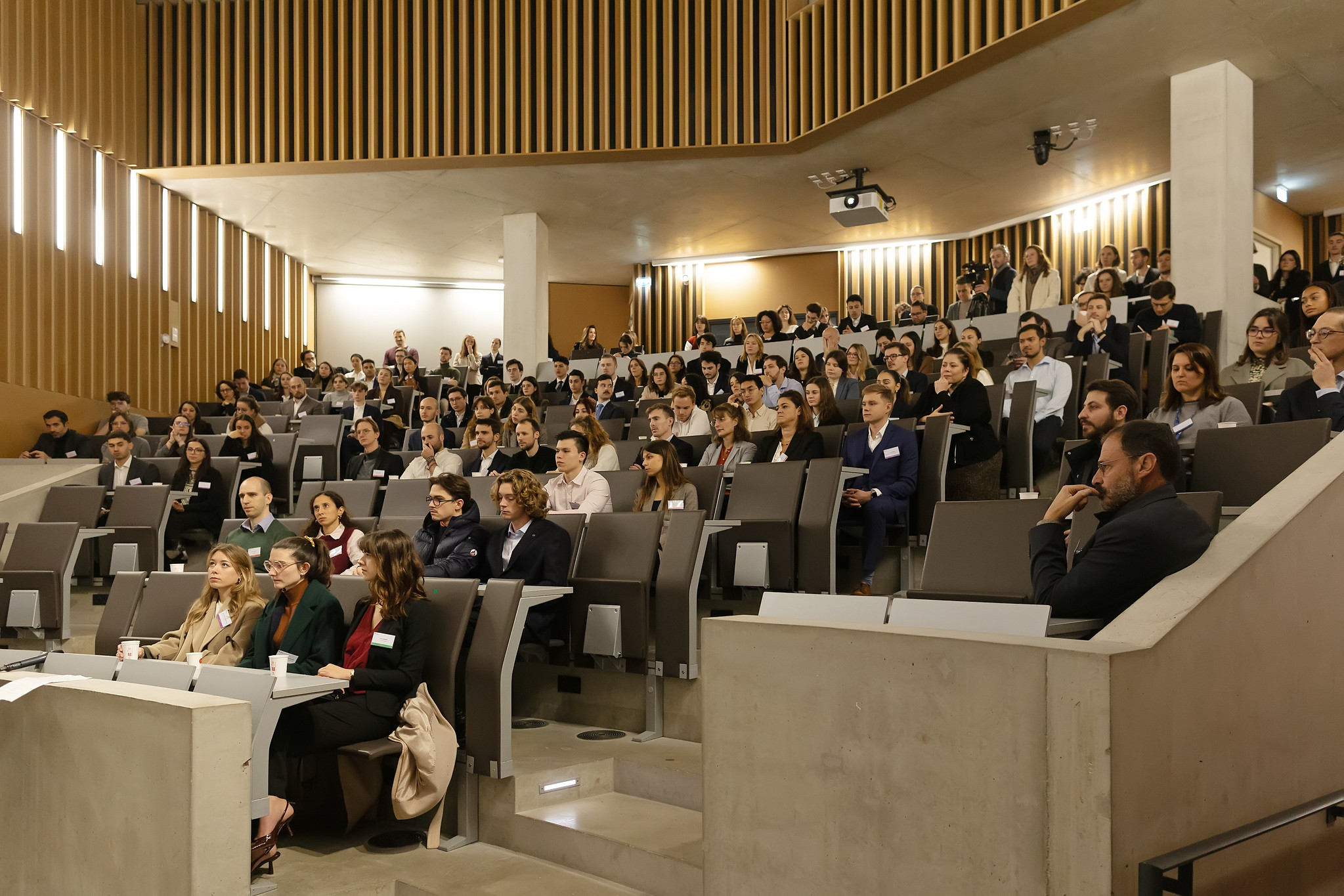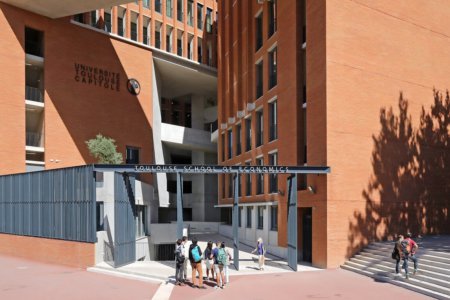There are many reasons why the Toulouse School of Economics (TSE) stands as the eighth-best economics division in the world. Its prestige is cemented by its internationally competitive programmes — all of which are grounded in economic theory while emphasising future-focused topics like data science, statistical methods, and mathematical modelling. Through these programmes, TSE promises a strong understanding of the global economic landscape’s intricacies.
Read on to unfold the layers of its educational approach through the eyes of just five of its 130 esteemed professors.
Grasp social science methods with Marion Hoffman

Marion Hoffman. Source: Toulouse School of Economics
Hoffman, a fervent advocate for hands-on learning, orchestrates her Graph Analysis course within the Master in Data Science for Social Sciences with a blend of videos, drawings, and real-life examples. These ensure her students learn and apply. “My main goal is to equip them with tools they understand and will be able to use in the future,” she says.
For example, learners must submit a report at the end of each practical session, with their grades reflecting their effort more than the quality of their outcomes. During lectures, Hoffman reviews these reports, discussing her findings and encouraging a dynamic exchange of ideas in the classroom.
“At the end of the course, the students need to design a study and show that they mastered the methods we have seen in the course,” she shares. It challenges them to apply their skills to devise solutions to real-life problems, such as analysing networks of treaties between countries or collaboration networks within organisations.
Navigating global risks with Ulrich Hege

Ulrich Hege. Source: Toulouse School of Economics
At the helm of the Master in Economics of Global Risks, distinguished professor Ulrich Hege equips his students with the tools to survive and thrive through the turbulent waters of global risks. “My teaching philosophy relies on two pillars: a focus on fundamentals and quantitative methods (including macro, finance, economics of decisions, econometrics, statistical tools, data science) and a focus on hands-on learning through guided work on projects,” he explains. “Ninety percent of our programme is focused on these two pillars.”
The curriculum’s integration of real-world issues through industry-linked projects and interdisciplinary seminars extends learning beyond traditional economics, fostering a broader perspective essential for today’s interconnected world. Hege encourages students to draw on diverse disciplines, ensuring they emerge as well-rounded, adaptable economists ready to influence and innovate in various sectors.
Cultivate precision in economic analysis with Catherine Cazals

Catherine Cazals. Source: Toulouse School of Economics
Catherine Cazals, a leading figure in the Master in Econometrics and Empirical Economics, prepares students to become adept consultants, analysts, and economists by emphasising the importance of formulating precise questions and applying the correct empirical tools to address them. “In our teaching, we emphasise this point, providing solid training in the most recent empirical and econometric tools, with concrete applications in many fields such as industrial organisation, finance, and public policy evaluation,” she shares.
Her curriculum is enriched by talks from professionals, alumni, and academics, which link theoretical knowledge with industry insights. It’s one of the many ways Cazals encourages her students to maintain a mindset of curiosity and critical thinking — especially vital in a world where economic models and data accessibility continually evolve due to technological advancements.
Explore environmental economics with Philippe Bontems

Philppe Bontems. Source: Toulouse School of Economics
Directing the Master Environmental Economics and Policy programme, senior research fellow Philippe Bontems emphasises starting with the basics and progressively tackling more complex issues, using the latest research to challenge and dismantle conventional wisdom. His goal is to cultivate a healthy scepticism in students, encouraging them to persistently question and deepen their understanding of the environmental challenges facing our world.
“I think TSE is a special place with so many different people working in different disciplines and examining a wide variety of research objects that it reflects on the teaching,” he says.
Understanding the necessity of an interdisciplinary strategy, Bontems even integrates economics with ecology and environmental law. He believes exposing students to these varied disciplines is crucial for those studying economics — especially for those focused on environmental issues like biodiversity protection.
Gain deep analytical acumen with Eric Gautier

Eric Gautier. Source: Toulouse School of Economics
Eric Gautier teaches high-dimensional models that prepare students for the complexities of modern economics and econometrics in TSE’s Master in Mathematics and Economic Decision, which is deeply rooted in research-based training. “I am teaching High-Dimensional Models,” he says. “The topic is related to optimisation, and I explain how to derive the algorithm.”
Gautier starts with simple models to build a solid understanding, then gradually introduces more complex ones, ensuring students grasp why models with more parameters than samples can be viable if they are parsimoniously designed. Practical application is central to his curriculum, too, where empirical examples and industry collaborations bring theoretical concepts to life.
Follow Toulouse School of Economics on Facebook, X, Flickr, YouTube, LinkedIn, Instagram and TikTok












